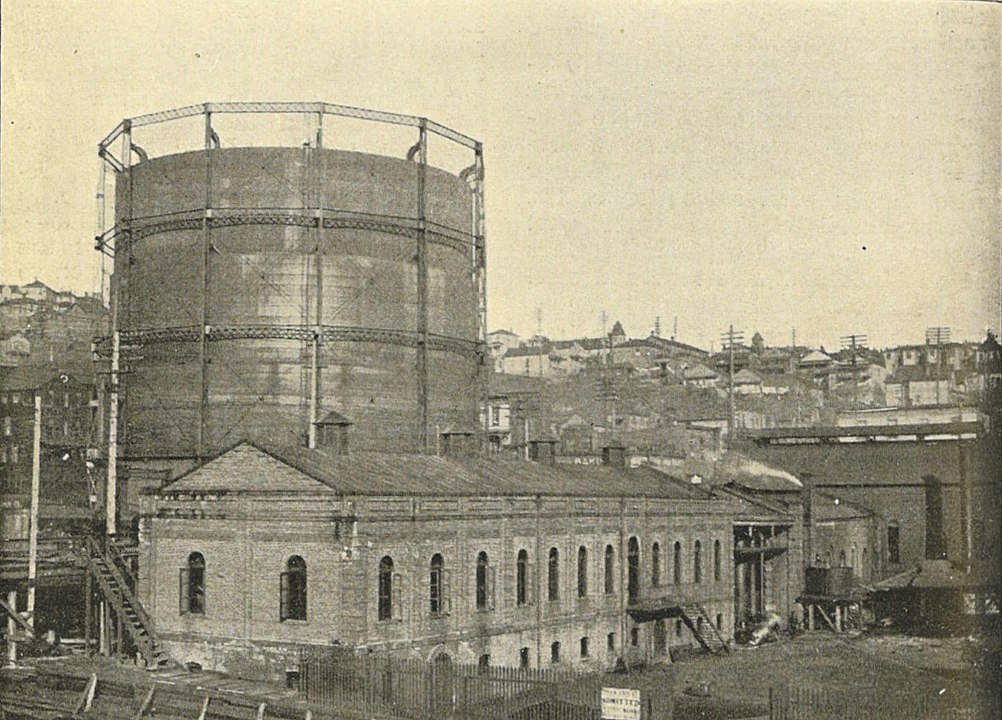Among the hidden levers for decarbonizing the Northwest are “franchise agreements,” the unassuming but influential contracts that govern utilities’ use of the public right of way in cities and towns. Local governments can renegotiate their agreements with gas utilities to require better environmental performance or to raise costs on gas providers in various ways. Many Northwest cities are well-positioned to move forward, but not the region’s biggest city. In fact, Seattle appears to be stuck in a time warp.
As the largest and most economically complex city in the region, one might think that Seattle’s contracts would be the most sophisticated. But no: Seattle’s franchise with Puget Sound Energy (PSE), western Washington’s gas utility, has not been updated since 1881, back when Dexter Horton and his associates were the owners of the Seattle Gas Light Company. For well over a century, multiple successor utilities—including PSE in the present day—have inherited the rights granted by this antique franchise agreement.
Getting our hands on it wasn’t easy. Searching Seattle’s online archive yielded nothing. A representative from the City Clerk’s office spent a few hours manipulating keywords but was only able to unearth a 1938 Seattle Steam franchise, before giving up. Public record requests to the two departments that manage the city’s public right of way yielded nothing. Both the Department of Construction and Inspections and the Department of Transportation closed our records request with a terse “no responsive records.”
Most local governments simply post their agreements on their websites. In a few cases, like with Bellevue and Tacoma, we needed to file a formal request to the city for the franchise agreement, but we were still able to obtain the documents within a week. Not so with Seattle. Several months after our initial research inquiries, we were finally saved by a retired Seattle employee who helped us connect with an Office of Intergovernmental Relations staffer who solved the mystery and sent along the 138-year-old document.
So, what’s in it? Precious little to protect the public when compared to modern franchise agreements around the region. The ordinance has no requirements for indemnification, insurance, safety, or construction permits (although Seattle Municipal Code Title 15 does address these requirements). It also stipulates that the gas company’s construction must not impair street conditions. Most interestingly, the successor companies to Dexter Horton—that is, PSE—are permitted to erect and maintain gas works for illumination in the City of Seattle with an exclusive franchise that was originally supposed to run for 25 years.
No other municipal agreement we reviewed allowed a franchisee to take exclusive rights to the public right-of-way. And no other city got locked into a permanent agreement like Seattle did.
In 1900, after the initial 25-year franchise period had passed, Seattle tried to dissolve the franchise with a new ordinance. But Seattle Gas & Electric Company, a successor to Dexter Horton’s firm, sued to continue the status quo. The case made it all the way to the US 9th Circuit Court of Appeals, which found in favor of the utility, stating that the Company was “entitled in perpetuity to the right, privilege, authority, power and franchise to establish… a manufactory of gas…”. The court argued that because the original investors expended large sums of money laying down the infrastructure, the SG&EC was entitled to a perpetual franchise. In other words, the Court scrapped the agreed-upon 25-year commitment and awarded rights to the gas company forever.
That was 119 years ago. So far as we are aware, every other city in the region has moved beyond its original agreements with gas utilities, allowing for more modern legal language. It makes us wonder whether it’s about time for the courts to take another look at Seattle’s ancient franchise agreement. Until then, other cities in the Northwest can lead the way, using legal agreements about the use of the public right-of-way to compel fossil fuel companies to clean up their act.
Laura Feinstein volunteers with Sightline researching energy policy. She spent 11 years in the utility industry, working in energy conservation and engineering.
Eric de Place is Sightline’s Director of Thin Green Line. He is a leading expert on coal, oil, and gas export plans in the Pacific Northwest, particularly on fossil fuel transport issues, including carbon emissions, local pollution, transportation system impacts, rail policy, and economics.
For questions or media inquiries , contact Anna Fahey.


Comments are closed.